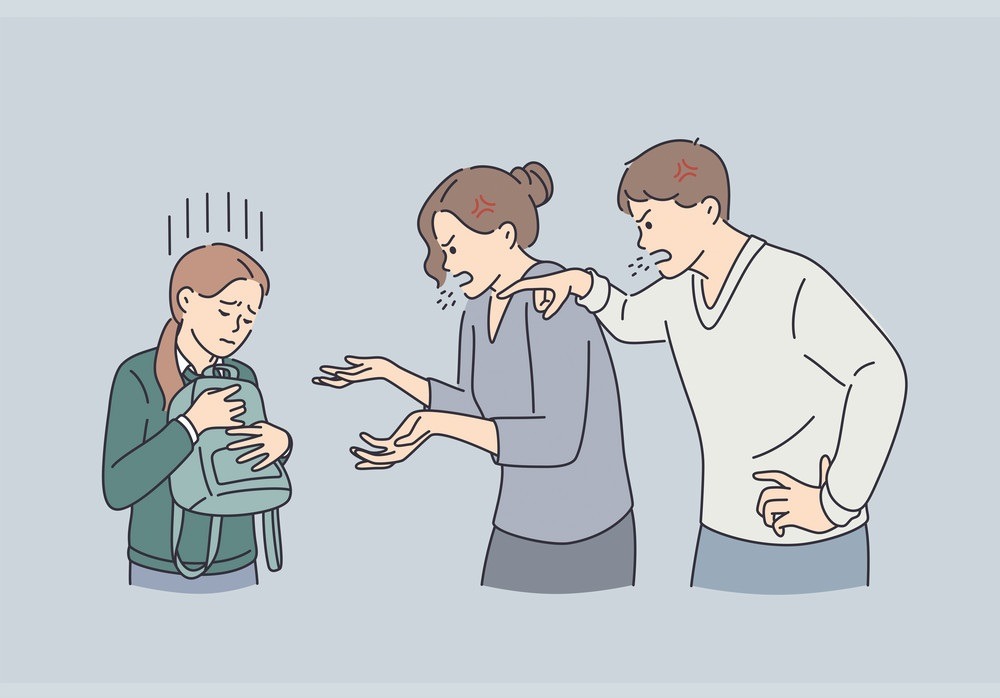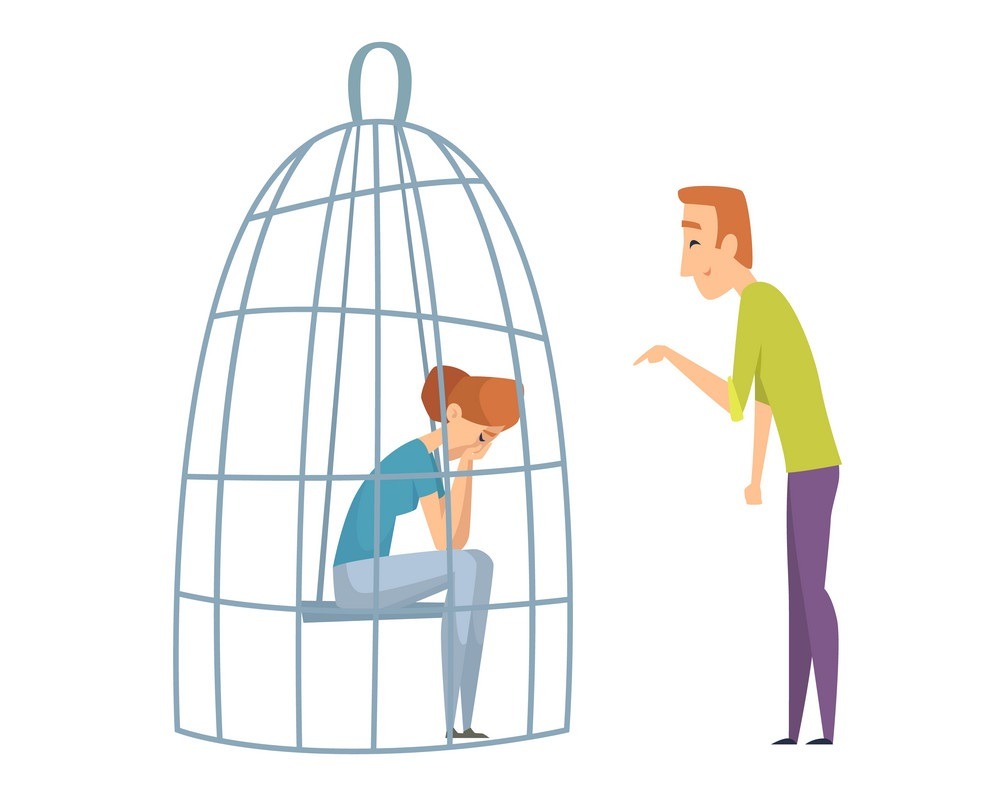In our part of the world, Gender-based violence (GBV) is not uncommon. The Middle East and North Africa (MENA) region has long struggled with GBV, with women being the most impacted group.
According to the “Regional Action Plan To Address Gender-Based Violence In The Middle East And North Africa Region” study by The World Bank Group (WBG), at least 40% of MENA women have experienced physical or sexual violence from an intimate partner during their lifetime. The project aims to help spread awareness about this issue and present an action plan to tackle it.
As of now, the MENA region doesn’t have representative data on how common different types of GBV are. Moreover, the most common way to collect data is through demographic and household surveys, but this process is not so easy; there are a lot of factors that might prevent people from sharing their GBV experiences: first of all, it’s a sensitive topic to discuss with a traumatized survivor. Secondly, some believe that the assault that happened behind closed doors is a private, family matter. Thirdly, there is the issue of how violence might be normalized in some households to the point where the victim would not be alarmed enough to talk about it. Lastly, there might be a general distrust in the responsible institutions; so, why bother and report?
However, WBG is persistent to use all available means to help prevent and address GBV. Now there is a regional action plan addressing GBV and this just shows the extreme commitment and awareness of the harmful impact it has on survivors and the community.
Fundamentally, it is important to know about different types of gender-based violence
- Intimate Partner Violence (IPV): This issue is considered a societal problem, not a crime. Moreover, this is the most prevalent type of GBV in MENA. The Status of Arab Women Report of 2017 states that 35% of women in the region have experienced IPV and never reported it to officials or asked for help.

- Non-Partner Violence: This type of GBV includes physical, sexual and psychological violence by a family member, colleague, a friend or a stranger. It also entails sex trafficking, rape and all forms of sexual assault. Furthermore, conflict-afflicted areas or countries have a higher risk of having non-partner violence. Minorities and marginalized persons, such as displaced women or female migrants, are very vulnerable to non-partner violence.
- Femicide: The term refers to killing women and girls for “family honor”. Honor crimes and killings are normalized in many areas in MENA; it’s related to the traditional belief that men are the official guardians over females. When a woman does something that is against the social norms, to some people, killing her becomes okay.
- GBV Against Children: Children and adolescents experience GBV on a regular basis. Girls and boys can experience GBV at home or in school. School bullying tends to stunt their educational growth. Along with forced early marriage, children experience physical and sexual violence. Additionally, prostitution and sex trafficking of children are widespread in many MENA countries.

- Female Genital Mutilation/Cutting: It’s the partial or total removal of the external female genitalia for unmedical reasons. It’s a form of GBV that’s justified by traditions and culture and is pretty dominant in rural areas in the Middle East. However, its psychological impact is horrid and irreversible.
- Sexual Harassment: Violation of the body for sexual purposes is something that a lot of women go through. Just in Egypt, 99.3% of women have experienced sexual harassment. Women are subject to harassment in public places, schools and even the workplace.
- Cyber GBV: One out of three women in MENA experience a form of online GBV; it can be death threats, scams or online sexual harassment. Family, relatives or partners supervise women on social media platforms, which mostly leads to cyber GBV.

- GBV in FCV Contexts: When placed in a conflicted area, women and men are vulnerable to GBV. As living conditions worsen and stress takes over, violence can be resorted to, even domestically. Victims might experience humiliation or sexual harassment.
- GBV and Climate Change: Scarce water sources in the region imply the need to travel to collect water, and that exposes women and girls to high risks of GBV. Additionally, climate-induced migration also increases the risks.
Currently, not all types of GBV are acknowledged or even criminalized. Marital rape is a form of IPV, yet it’s not a crime. Femicide is not a crime. Matter of fact, it’s legal to kill a female adulterer. Under the eyes of the law in some countries, female genital mutilation is not a crime. Sexual harassment penalties vary in each country, and, of course, it’s not widely enforced. There are no current policies to prevent cyber GBV. Moreover, the solution to food insecurity in light of climate change is early marriage for young women that come from a lower socioeconomic status.
The Regional Action Plan To Address Gender-Based Violence In The Middle East And North Africa Region
The Action Plan has three pillars:
- Data and knowledge.
- Policy dialogue.
- Operational engagement.
Data and knowledge
Above all, raising awareness about different types of GBV, the groups at risk and the catalysts that increase risks is important. One essential step in the process is to support documentation of GBV; victims have to speak up. While reporting GBV is not common, it’s important to identify the reasons why people have no access to supportive services for GBV. The final step is to build on the evidence of what works, whether it is spreading awareness or changing social norms and attitudes.
Policy dialogue
The current legislation on GBV in MENA is to be reviewed and aligned with international laws. Supporting the revision process of national strategies that take on GBV is also key. The action plan entails enforcing workplace policies, as well as implementing GBV plans to promote women’s leadership and empower them.
Operation prevention of GBV
Changing the current social norms of MENA is vital, as well as inspiring behavior change. The leaders of the community and the authorities must cooperate, especially to employ available health services. Another important aspect is to pin down the ones in jeopardy and survivors to provide them with the needed help and support. Additionally, the media is a great weapon for sending messages about GBV prevention.
Proactively, the youth need to be taught about GBV in schools or even online. More preventive steps include strengthening the reporting mechanisms and opportunities, having support and empowering programs for children and adolescents, and improving safety in public spaces, transportation, and the workplace.
MENA has already taken steps towards addressing violence against women, as well as achieving gender equality. United Nations agencies are playing a big role in tackling GBV. The UN advocates change and support national and regional efforts to prevent gender-based violence, all while admitting that prevention requires systematized and continuous actions by authorities.
Honestly, it’s about time.



